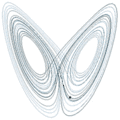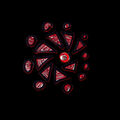Template:Selected anniversaries/October 13: Difference between revisions
No edit summary |
No edit summary |
||
| Line 9: | Line 9: | ||
||1689: George Ent dies ... scientist in the seventeenth century who focused on the study of anatomy. He was a member of the Royal Society and the Royal College of Physicians. Ent is best known for his associations with William Harvey, particularly his ''Apologia pro circulatione sanguinis'', a defense of Harvey’s work. Pic. | ||1689: George Ent dies ... scientist in the seventeenth century who focused on the study of anatomy. He was a member of the Royal Society and the Royal College of Physicians. Ent is best known for his associations with William Harvey, particularly his ''Apologia pro circulatione sanguinis'', a defense of Harvey’s work. Pic. | ||
||1710: Alban Butler born ... priest and hagiographer. Pic search yes: https://www.google.com/search?q=Alban+Butler | |||
File:Nicolas Malebranche.jpg|link=Nicolas Malebranche (nonfiction)|1715: Priest and philosopher [[Nicolas Malebranche (nonfiction)|Nicolas Malebranche]] dies. He was instrumental in introducing and disseminating the work of [[René Descartes (nonfiction)|René Descartes]] and [[Gottfried Wilhelm Leibniz (nonfiction)|Gottfried Wilhelm Leibniz]] in France. | File:Nicolas Malebranche.jpg|link=Nicolas Malebranche (nonfiction)|1715: Priest and philosopher [[Nicolas Malebranche (nonfiction)|Nicolas Malebranche]] dies. He was instrumental in introducing and disseminating the work of [[René Descartes (nonfiction)|René Descartes]] and [[Gottfried Wilhelm Leibniz (nonfiction)|Gottfried Wilhelm Leibniz]] in France. | ||
| Line 22: | Line 24: | ||
File:The Custodian.jpg|link=The Custodian|1774: [[The Custodian]] prevents the Whirlpool Galaxy Gang from committing [[crimes against astronomical constants]], citing the gang's "expired transdimensional corporate license." | File:The Custodian.jpg|link=The Custodian|1774: [[The Custodian]] prevents the Whirlpool Galaxy Gang from committing [[crimes against astronomical constants]], citing the gang's "expired transdimensional corporate license." | ||
||1820: John William Dawson born ... geologist and academic ... In 1859 he published a seminal paper describing the first fossil plant found in rocks of Devonian origin. Although his discovery did not have the impact that might have been expected at the time, | ||1820: John William Dawson born ... geologist and academic ... In 1859 he published a seminal paper describing the first fossil plant found in rocks of Devonian origin. Although his discovery did not have the impact that might have been expected at the time, he is now considered one of the founders of the science of palaeobotany. Pic. | ||
||1821: Rudolf | ||1821: Rudolf Virchow born ... physician, anthropologist, pathologist, prehistorian, biologist, writer, editor, and politician, known for his advancement of public health. He is known as "the father of modern pathology" because his work helped to discredit humourism, bringing more science to medicine. He is also known as the founder of social medicine and veterinary pathology, and to his colleagues, the "Pope of medicine". Pic. | ||
||1866: William Hopkins dies ... mathematician and geologist. He made important contributions in asserting a solid, rather than fluid, interior for the Earth and explaining many geological phenomena in terms of his model. However, though his conclusions proved to be correct, his mathematical and physical reasoning were subsequently seen as unsound. | ||1866: William Hopkins dies ... mathematician and geologist. He made important contributions in asserting a solid, rather than fluid, interior for the Earth and explaining many geological phenomena in terms of his model. However, though his conclusions proved to be correct, his mathematical and physical reasoning were subsequently seen as unsound. | ||
Revision as of 10:04, 14 May 2019
1597: Astronomer Johannes Kepler replied to Galileo's letter of 4 August, 1597, urging him to be bold and proceed openly in his advocacy of Copernicanism.
1687: Astronomer, lens-maker, and academic Geminiano Montanari dies. He made the observation that Algol in the constellation of Perseus varies in brightness.
1715: Priest and philosopher Nicolas Malebranche dies. He was instrumental in introducing and disseminating the work of René Descartes and Gottfried Wilhelm Leibniz in France.
1729: Leonhard Euler mentions the gamma function in a letter to Christian Goldbach. Adrien-Marie Legendre gave the function its symbol and name in 1826.
1772: Using the San Pietro scrying engine, astronomer Charles Messier previews his discovery of a "galactic whirlpool" with a temporal accuracy of "within a year".
1773: The Whirlpool Galaxy is discovered by Charles Messier.
1774: The Custodian prevents the Whirlpool Galaxy Gang from committing crimes against astronomical constants, citing the gang's "expired transdimensional corporate license."
1890: Mathematician Georg Feigl born. He will work on the foundations of geometry and topology, studying fixed point theorems for n-dimensional manifolds. Feigl will be one of the initial authors of the Mathematisches Wörterbuch.
1987: Physicist and academic Walter Houser Brattain dies. He shared the Nobel Prize in Physics in 1956 "for research on semiconductors and the discovery of the transistor effect."
1989: Lorenz system develops self-awareness, experiences irrational fear of the number thirteen.
2018: Signed first edition of Red Spiral 2 used in high-energy literature experiment unexpectedly develops artificial intelligence.










